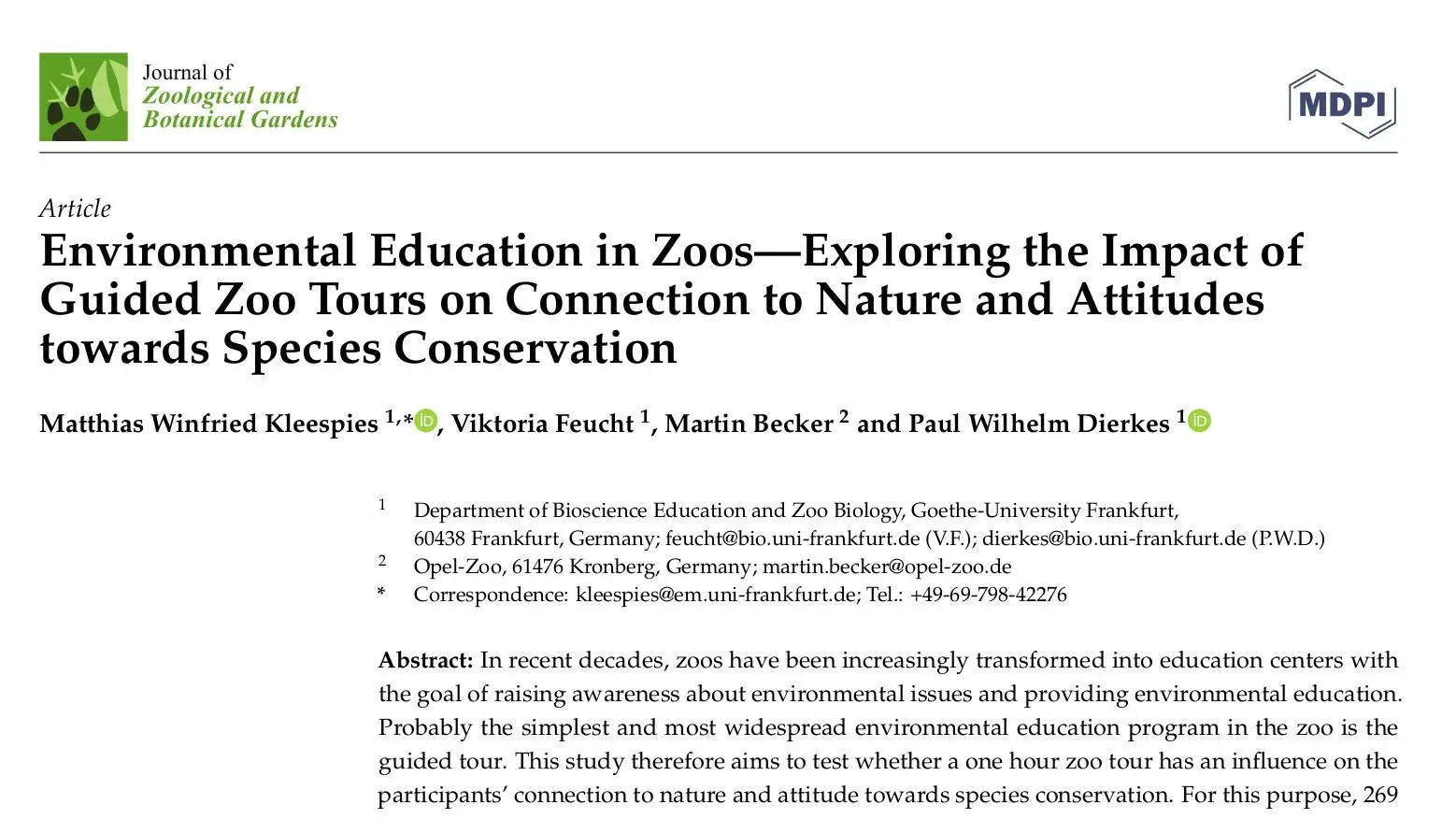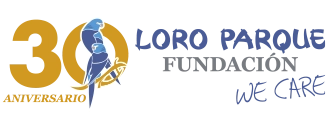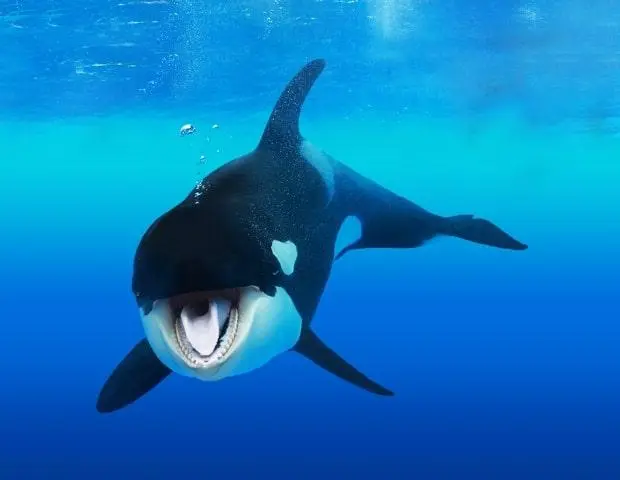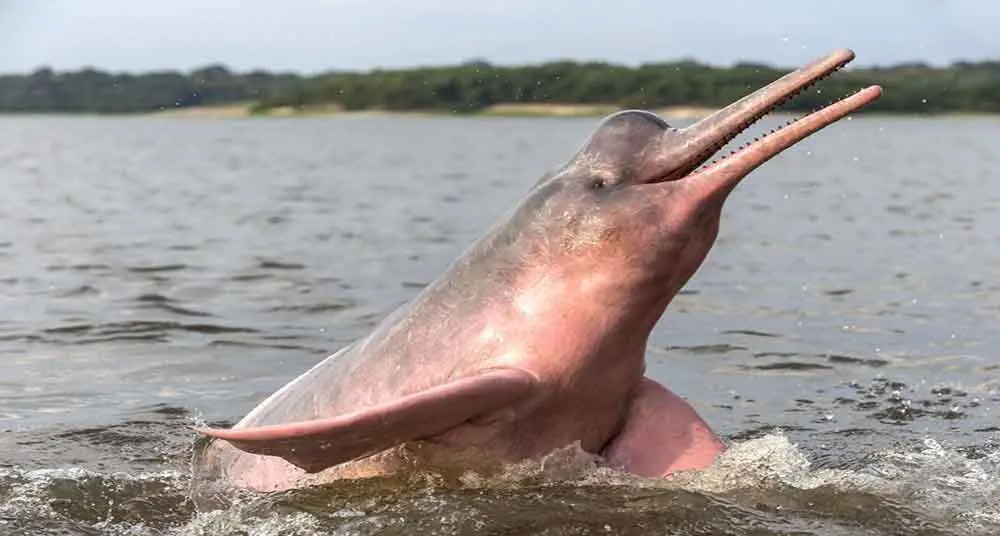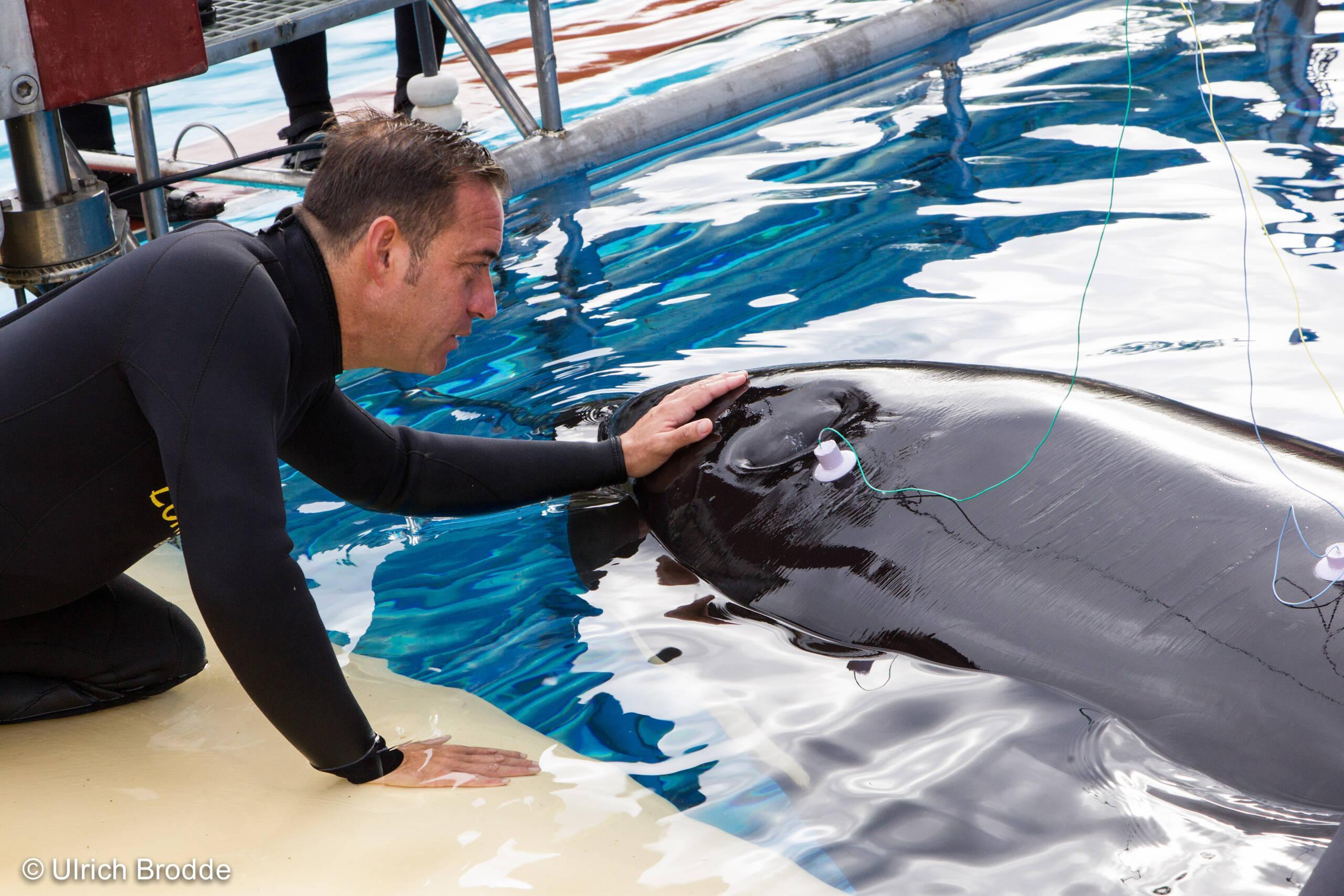
| Category | Maritime |
| Date | 2006- |
| Investment | 1.309.061$ |
Since 2006 Loro Parque Fundación has been researching orca language and vocal communication. In this bioacoustics project, the development of computer systems has allowed progress in this field, which is essential for orcas.
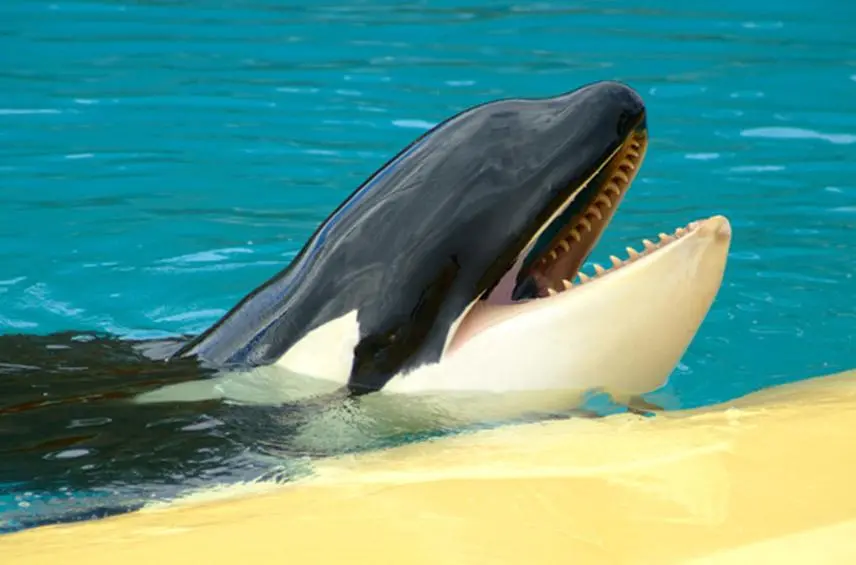
Orcas (Orcinus orca) are animals with an extraordinarily complex culture. This culture favours a diversity of behaviours among specimens of the same species that provides them with certain adaptive advantages, promotes speciation (the process by which more species are generated from an initial species) and can influence both the conservation of other species of marine mammals and the management of coastal ecosystems where they are present.
Since 2006 LPF has been investigating orca language and vocal communication, that is why its facilities are equipped with hydrophones, video cameras and state-of-the-art underwater loudspeakers, making Orca Ocean’s infrastructure a perfect laboratory for collecting and studying orca sounds.
The research project aims to delve into the central element of O. orca culture, their communication system. The goal is to contribute to the creation of a theoretical body that will enable a more efficient management of wild populations and help to improve the species’ conservation status. Its main objectives are to create new tools for bioacoustic analysis and to delve into the processes that influence the variation of orca dialect and the elements that encode meaning in discrete calls.
Bioacoustic research is based on the recording, identification and analysis of sounds emitted by animals. In that sense, detailed analyses of signals (necessary when intending to study communication systems in depth) require processing thousands of vocalizations, which are nearly impossible to compare without adequate automation. This automation is not a simple process and, although there are some proposals in this regard, none has been completely satisfactory. In this bioacoustics project, computer systems have been developed that have allowed progress in this field.
Through this project it is possible to advance in the development of technology that enables underwater acoustic measurement, and of automated calibration algorithms.
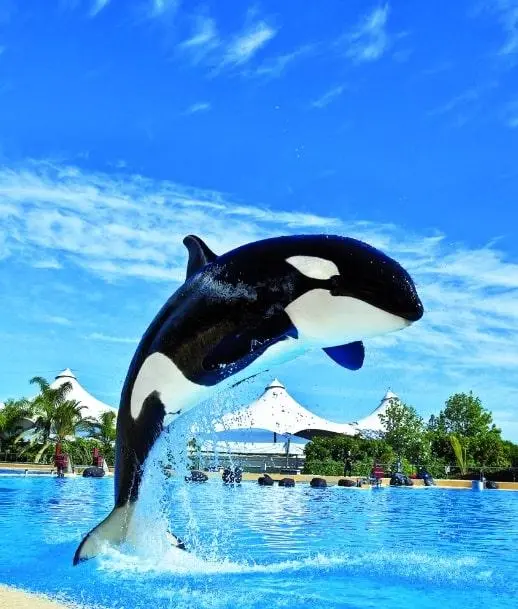
Learn about Morgan’s story
Morgan was rescued in 2010 off the Dutch coast of the Wadden Sea, where she was found with skin abrasions, swelling and severe malnutrition. After recovering in the Harderwijk Dolphinarium, and after a group of international scientists who were experts on killer whales determined that returning her to the sea would almost certainly mean condemning her to a slow death, the Dutch authorities asked Loro Parque to take Morgan in so that he could integrate into a social group of killer whales. She was transferred to the Park in 2011, and in March 2012 Morgan was considered to be fully integrated into the group of orcas in Loro Parque. Since then, she has lived healthy and been an active part of the social structure of the group, and of the research, education and conservation activities that are carried out on a regular basis with the killer whales.
Morgan suffers from severe acoustic deficiency, so the Loro Parque team of keepers communicate with her through visual signals, gestures or light stimuli.
BLOG
News
